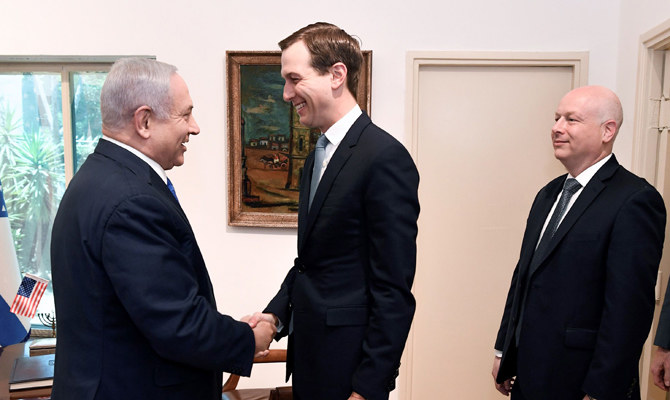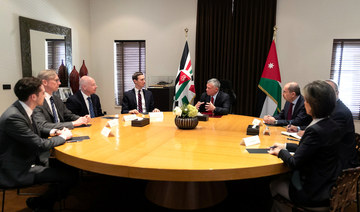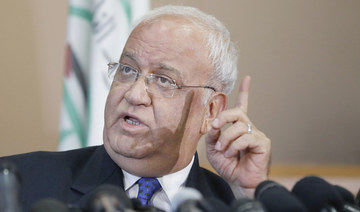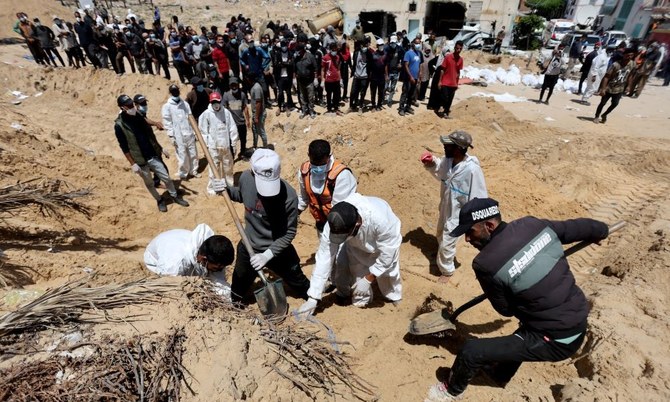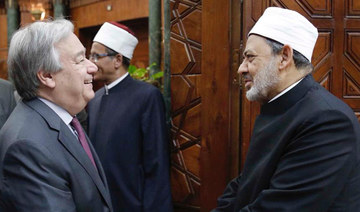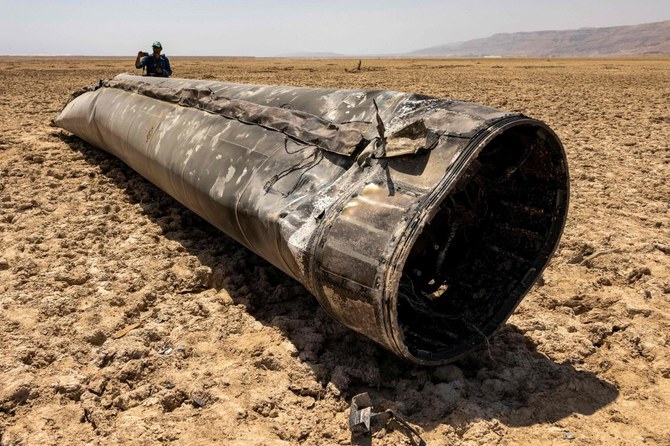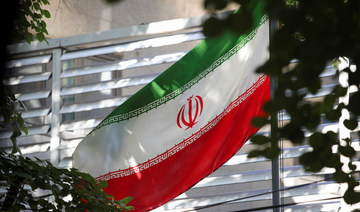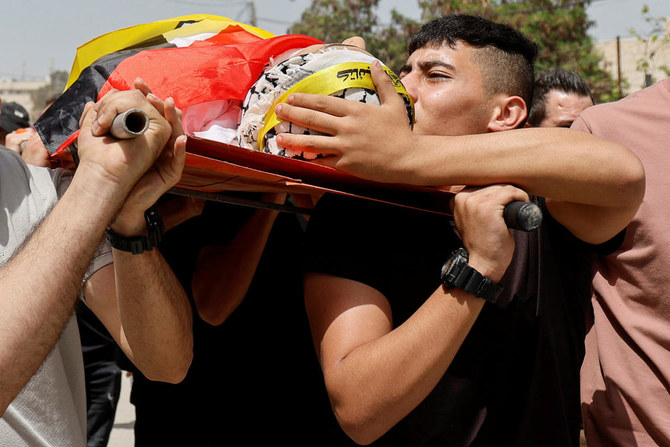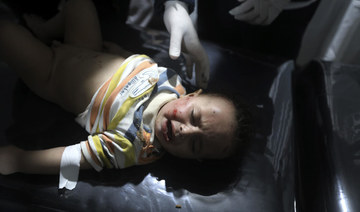JERUSALEM: President Donald Trump’s son-in-law and senior adviser Jared Kushner met with Israeli Prime Minister Benjamin Netanyahu on Thursday to push the Trump administration’s long-awaited plan for Mideast peace, just as Israel was thrust into the political tumult of an unprecedented second election in the same year.
Kushner and US special envoy Jason Greenblatt stopped in Israel as part of a Middle East tour to rally support for the administration’s upcoming economic conference in Bahrain, which the White House bills as the first portion of its peace plan.
The US is hoping to draw Arab states to participate in the workshop, which envisions large-scale infrastructure work and investment in the Palestinian territories.
In brief joint remarks, Kushner touted American-Israeli cooperation, saying, “it’s never been stronger and we’re very excited about all the potential that lies ahead for Israel ... and for the whole region.” But public attention was dominated by Israel’s political crisis.
Netanyahu attempted to play down concerns that the Israeli Parliament’s dramatic dissolution would further postpone the US peace plan rollout. “You know, we had a little event last night,” he said. “That’s not going to
stop us.”
At the White House, President Trump weighed in expressing dismay at the prime minister’s failure to form a governing coalition. Calling Netanyahu a “great guy,” Trump said he feels “very badly” that the country has to face another election because there is “enough turmoil” in the region.
Israel’s reopened election season presents another stumbling block for Trump’s Mideast peace process, which the Palestinians, citing the administration’s pro-Israel bias, have rejected out of hand.
The Trump administration had hinged the plan’s unveiling on Netanyahu’s victory in elections last month. Now, it seems the proposal will have to wait for the outcome of another tumultuous election cycle, after which Trump’s own race for re-election will be kicking into gear.
Traveling this week to Jordan and Morocco, Kushner and Greenblatt strove to drum up support for the economic conference in Bahrain, scheduled for June 25-26. Neither state has announced plans for participation.
After more than two years of work, Kushner’s team still has not unveiled its political vision. But glimpses of the plan hint it will focus heavily on so-called economic peace while sidelining or ignoring the longstanding Palestinian goal of independence. The two-state solution continues to enjoy the broad support of the international community.
Meeting with the US presidential advisers, Jordan’s King Abdullah stood by his country’s commitment to the two-state solution, exposing a rift with the administration and raising doubts about how Trump’s team will win over skeptical Arab states.
The king insisted on the “need to intensify efforts to achieve a comprehensive and lasting peace based on the two-state solution, that would guarantee the establishment of an independent Palestinian state with east Jerusalem as its capital.”
Dennis Ross, the veteran Middle East negotiator, says the plan’s outlook has dimmed, considering the “many unknowns” that may indefinitely defer its rollout.
Specifically, if Netanyahu pivots even farther to the right on the campaign trial, appealing to voters by promising to annex West Bank settlements again, “the political climate will only get more difficult ... it will make it harder for Arab leaders to accept anything.”
But, he said, Trump has attached particular importance to this peace agreement, and is eager for an accomplishment.
If the administration manages to ditch the stigmatized tagline of “economic peace,” and sells the Bahrain workshop as a step toward “economic stabilization” with the help of Gulf states, the constant deferral of the plan’s thornier political portion, such as the status of contested Jerusalem and the fate of Palestinian refugees, could work in its favor.
“It might be difficult for the Palestinians to reject reconstruction and development projects given the financial crises destabilizing the West Bank and Gaza right now,” said Ross.
Still, the Palestinians say they will not attend the Bahrain meeting, rejecting the parameters of the conference and the role of the US as mediator.
At this early point, the cash-strapped Palestinian leadership “would be saying no only to the improvement of the terrible economic conditions in Gaza and the West Bank ... that could be helped without their having to give anything up politically.”
Palestinian President Mahmoud Abbas and his autonomy government in the West Bank cut off ties with the White House after Trump recognized contested Jerusalem as Israel’s capital in December 2017.
Israel captured east Jerusalem in 1967 and annexed it to its capital. Though Trump said his declaration did not determine the city’s final borders, the Palestinians saw the move as unfairly favoring Israel. US cuts in aid, and the closure of the Palestinian diplomatic office in Washington, further deepened their suspicions.



